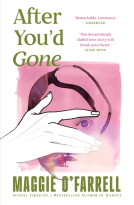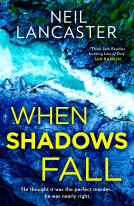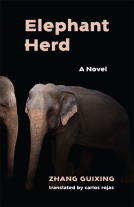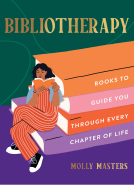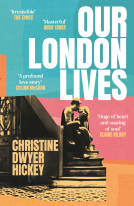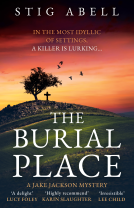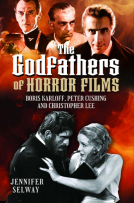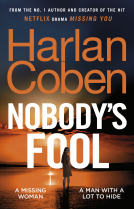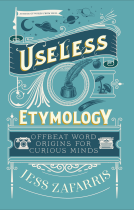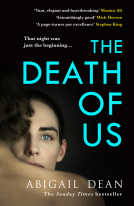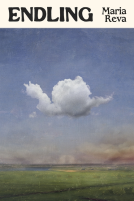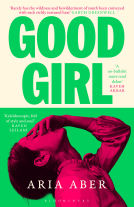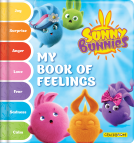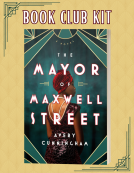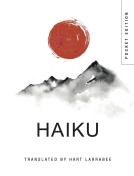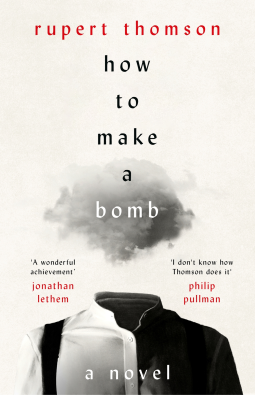
How to Make a Bomb
A Novel
by Rupert Thomson
This title was previously available on NetGalley and is now archived.
Send NetGalley books directly to your Kindle or Kindle app
1
To read on a Kindle or Kindle app, please add kindle@netgalley.com as an approved email address to receive files in your Amazon account. Click here for step-by-step instructions.
2
Also find your Kindle email address within your Amazon account, and enter it here.
Pub Date 11 Apr 2024 | Archive Date 30 Apr 2024
Head of Zeus | Apollo
Talking about this book? Use #HTMAB #NetGalley. More hashtag tips!
Description
If he suddenly found what surrounded him unbearable, it was because it was artificial
Everything had been designed and manufactured, and he was trapped in it
Philip Notman, an acclaimed historian, attends a conference in Bergen, Norway. On his return to London, and to his wife and son, something unexpected and inexplicable happens to him, and he is unable to settle back into his normal life.
Seeking answers, he flies to Cadiz to see Inés, a Spanish academic with whom he shared a connection at the conference, but his journey doesn't end there. A chance encounter with a wealthy, elderly couple sends him to a house on the south coast of Crete. Is he thinking of leaving his wife, whom he claims he still loves, or is he trying to change a reality that has become impossible to bear? Is he on a quest for a simpler and more authentic
existence, or is he utterly self-deluded?
As he tries to make sense of both his personal circumstances and the world surrounding him, he finds himself embarking on a course of action that will push him to the very brink of disaster.
Advance Praise
I devoured [this book] in a single sitting. The sense of dislocation – and location – made it seem like a dream of another life, all of it so lyrical and yet narratively acute. A wonderful achievement. - Jonathan Lethem
Masterfully ambiguous... How to Make a Bomb raises complicated questions... but doesn’t neatly wrap them up. Rather, it allows the ideological inquiries at the center of the book to linger and bloom for continued consideration... How to Make a Bomb provides a powerfully evocative catalyst for thought and feeling - Matt Bell, NYT
A novel that turns a midlife crisis inside out, rewardingly...the result, in Thomson's expert hands, is fast-paced and headlong; the book ends up rewiring the reader's sense of what's banal and what's not. A work about estrangement and solitude that's surprisingly rapid, engaging, light-footed. - Kirkus reviews
Available Editions
| EDITION | Other Format |
| ISBN | 9781035908530 |
| PRICE | £20.00 (GBP) |
| PAGES | 432 |
Available on NetGalley
Featured Reviews
First published in the US under the title Dartmouth Park, it has been given a much more provocative title here in the UK. Rupert Thomson has been working for a long time now - this is his 14th novel - and though he has been on my radar for some time, this is my first taste of his work.
Written in the style of an epic poem - with shades of Nobel Laureate of 2023 Jon Fosse's style in his Septology (I read that work a month before this so the echoes may be more pronounced in my mind). It is a distinct style that you have to accept and settle in with if you're to get along with this book. This is not a criticism, and shouldn't be taken as off-putting, because it isn't, it's just a little more unique.
I read the novel over two sittings, and found it very immersive, fascinating and brilliant at times. It is the story of a mid-life crisis of an academic - Philip Notman - and the things that happen to him, distract him and send him off into the world. The story then isn't unique, we've read this a dozen or more times before - but it is in the presentation, and Thomson's style here is what makes the novel bring dividends.
It is also a novel which has made me keen to try more of his back catalogue, so I would call this a success.
Thanks to Netgalley and the publishers for the ARC.
 Michael J, Educator
Michael J, Educator
It's become a cliché among many of the kinds of people who comment on these kinds of things that Rupert Thomson's novels are all wildly different, underrated and/or unjustly ignored. Perhaps the attention-grabbing title of How to Make a Bomb is an attempt to counter this. Although better than the unhelpful US title (Dartmouth Park), it's also rather misleading, as this is a characteristically subtle, thoughtful book, which brings together something resembling a mid-life crisis with the wider crises we face as a species and a planet. Like many of Thomson's novels it travels well, from Norway to London via Cádiz and Crete, as the central figure, Philip Notman (the name is significant) attempts to make sense of the sudden, and literal, nausea ("civilisation sickness" as it is known in Japan) which he feels at the world. As ever with Thomson, there is wisdom, humour and insight here and the form of the novel - made up of fairly short sentences separated into paragraphs without full stops - reflects and powerfully conveys Philip's disorientation and hesitations. Another very good novel from Thomson, which ought to receive the attention and praise all his work deserves.
How to Make a Bomb was initially published last year in the US under the somewhat less provocative title Dartmouth Park. It’s a short novel, written in a sparse poetic style, eschewing paragraphs in favour of short sentences with line breaks and limited punctuation. Its focus is the fifty-year-old London-based historian Philip Notman, who is thrown into a deep personal crisis following a trip to a conference in Bergen. On his return he begins to struggle to pick up with his everyday life, and abandons his wife and (adult) son to head off in search of… something. Initially it seems that that something may be an affair, with the captivating Ines, who he met at the Bergen conference and initially seeks out in Cadiz. Yet relatively soon he is on the move again, this time to Crete to spend time in the dilapidated house of an older couple he helped out in Spain. He arrives seeking fulfillment of a different kind, away from the noise of modern life, and is further tempted by the allure of religion on a visit to a monastery. When all of this ultimately fails to resolve his issues, he heads back to London with a new sense of purpose, and a rather disturbing mission.
This is a typically beautifully written and intriguing novel from Thomson. In its early phases it seems (formal presentation aside) like a relatively conventional, if beguiling, account of a man’s midlife crisis, with the expectation that Philip will find (or at least seek to find) some form of fulfillment in the arms of an alluring ‘other woman’. Its title hangs over this reading though, offering a sense that there’s more to this than meets the eye (something that I think significantly increases the tension and stakes of these early pages, and would have been missed if the UK publishers had gone with the US titling). Regardless, I enjoyed these pages a lot, in spite of their seemingly conventional themes. Ines is so magnetically rendered (in relatively few words) that it comes as a shock to us (much as it does to her) when Philip blurts out that he ‘doesn’t want anything from her’. We also learn about Philip’s initial ‘courting’ of his now-abandoned wife Anya, a hard-fought chase he won (against a soldier, no less, a fact which still seems to make him rather smug!) and a further source of intrigue for the reader, who is left to wonder what exactly it is that draws these captivating female characters to the perpetually unsatisfied (and rather drab seeming) Mr Notman, and what exactly is the source of his despair at his apparently charmed life.
Like the last advance novel I covered, Caledonian Road, this book features a middle-aged member of London’s academic class having some sort of existential crisis. While far less ‘on the nose’ (at least for the most part) than O’Hagan’s book, How to Make a Bomb is again obviously focused on the role of the modern man in a changing world. In this case, Notman (a deliberately apposite name, and not just for the punning fun it offers late in the novel) develops a sense of alienation, which he ultimately pins down as (a fairly nebulously defined) rejection of the capitalist system but seems also to lie in a form of emasculation. His travels in the book amount to a kind of quest to find a new sense of purpose (as a man?), though none of his actions give him the redemption he seems to be seeking. Through the novel he demonstrates random acts of kindness (helping an elderly man after a fall, contributing to putting out a wildfire in Crete, and supporting a homeless girl in London) yet despite some positive impact, he remains unfulfilled and seems determined to find ever-wilder (yet still somehow highly cliched) solutions to his problems, culminating in the book’s ambiguous and somewhat silly conclusion, which does (or perhaps does not) deliver on the book’s new title. At a couple of points in the book, Don Quixote is evoked, and Notman certainly does at points seem like a man tilting at windmills.
It’s a book that asks many more questions than it answers, mostly pivoting around our interpretation of its central character. He’s not entirely unsympathetic, and his eventual stated belief system, while entirely unoriginal, does have merit in its questioning of the evident ills of late capitalism. Yet at the same time, he’s obviously a version of the very archetypal mid-life-crisis-man, who has abandoned both his cushy life and his attendant responsibilities to go off in search of some sort of ‘meaning’. At many points he demonstrates good intentions but he’s almost entirely blind to the impact of his actions on other people. He lives more in his imagination than reality, with increasingly long sections devoted to his projections of what he thinks likely to happen as a result of his decisions - almost all focused on the impact on him rather than on others. These challenges of interpretation are briefly touched on in the novel’s final pages, which while more dramatic and action-packed than the rest of the novel, are ultimately a little bit of a disappointment. We’re left pondering not only what to make of the strange ‘civilisation sick’ Notman, but also questioning the reality of some of the events he has previously presented to us as fact.
Overall, it’s a small book which asks some very big questions. It’s for the most part masterfully written and is a compelling read throughout. Its ending takes things in surprising and in some senses unsatisfactory directions, but it’s still a worthy addition to a great (and still underrated) writer’s extensive and varied catalogue.
(8/10)
This is my first encounter with the author and I find it very interesting. Is such a immersive and intense read for me, the style is written it make it a bit difficult for me to read it but it was a good way of make me focus in the book and enjoy the “poem” I find the middle age crisis a so relatable and I really liked the characters. I am going to read more of this author because this book was a big yes and good read for me
Philip Notman, an acclaimed historian, attends a conference in Bergen, Norway. On his return to London, and to his wife and son, something unexpected and inexplicable happens to him, and he is unable to settle back into his normal life.
I enjoyed this book so much, the descriptions are amazing. It did take a while to get going as the lack of punctuation made for a difficult read, initially. It actually seems to be written like a poem at times. Short lines and paragraphs make it easy to read. I found it so intriguing it was difficult to put down.
This book is many things; a man dealing with his midlife crisis; the struggles with his emotions; even, in part, a travelogue. But it’s beautifully written and a wonderful read.
 Reviewer 1087058
Reviewer 1087058
Thanks to NetGalley and the publisher for an advance copy of this book with no obligation to review.
This is a very good and enjoyable read although I don't like the title. I see it was released as Dartmouth Park in the USA, which isn't any better as neither title encapsulates the book.
I found this to be an engrossing and thought provoking, unsettling read and I think it captures very well the condition of hyper sensitivity. I felt that there was a sort of misty, dreamlike quality to the writing which I liked and a lot of the scenes stay in the mind. I have discovered that the book is written in the style of an epic poem although I can't say that I noticed that! I also didn't notice the short sentences or lack of punctuation. I just felt involved with Philip's struggles, albeit that they are very much First World problems and some might say a bit self indulgent.
Cadiz sounds lovely and I have followed up on the flamenco artists mentioned. But those small Cretan villages sound absolutely grim.
I was thoroughly involved in the journey, the feelings, the mysteries but I think it all fell apart a bit when he starts living in the caravan and I thought the ending seemed abrupt. Maybe there were deeper things going on that I just didn't see.
Rupert Thomson's "Dartmouth Park" isn't your typical midlife crisis story. Philip Notman, a seemingly ordinary academic, experiences a jarring disconnect from reality on a train ride home. This unsettling event triggers a mental unraveling, forcing him to question everything he thought he knew about his life.
Thomson masterfully crafts a world where the mundane becomes menacing. Philip's journey takes him from his London home to chase answers in Spain, but the real exploration is internal. The narrative is fast-paced and suspenseful, keeping you on edge as Philip grapples with his fractured perception.
"Dartmouth Park" is a thought-provoking novel that delves into themes of estrangement, identity, and the unreliability of perception. Thomson's sharp prose exposes the fragility of our constructed realities, leaving the reader questioning their own sense of truth.
Recommendation: A must-read for those who enjoy unsettling psychological fiction and stories that challenge our understanding of the world.
"How to Make a Bomb" by Rupert Thomson is a gripping exploration of identity, obsession, and the blurred lines between reality and fiction. Thomson's prose is mesmerizing as he delves into the mind of his protagonist, crafting a haunting narrative that challenges perceptions and leaves readers questioning the nature of truth.
 Jean B, Reviewer
Jean B, Reviewer
I hadnt read any of Mr Thomson's books before this and have to admit was sucked in by the title and premise.
I was immediately drawn to the style and the layout, it felt quite tense and that something significant was going to happen at any minute. Then I bored of it and the protagonist slightly and thought it was a bit pretentious and false, then the ending was very disappointing so was still ambivalent.
However, it is now a few days since I finished reading the book and I'm still thinking about parts of it and the ideas discussed pertaining to reality, so I will definitely be looking to read some of the author's previous work
Thank you to netgalley and Head of zeus for an advance copy of this book
This novel got to me. It isn’t only about a man having a crisis; it’s also about a search for meaning, a longing for connection, a criticism of modern life. I read this more or less in two sittings and was really immersed and impressed by it. Sometimes you read a book at just the right moment. This was that book for me.
Thank you Head of Zeus and Netgalley UK for the ARC.
I enjoyed this much more than expected and don't really understand the low number of reviews.
Ok, it's about a white, middle-aged man, going through a midlife crisis, and fair enough if people feel enough has been written about those. But that doesn't mean this isn't a good book!
Philip Notman is a historian. Travelling back from a conference in Bergen, he has an overwhelming experience of heightened reality, which leads him to question consumerism and modern society. It gradually becomes clear to him that what he needs is a more simple life. He travels to Cadiz and then on to Crete, gradually stripping away unnecessary layers of life, until reaching the ultimate conclusion.
 Reviewer 638300
Reviewer 638300
This was a strange little book about descendent into madness and a mid-life crisis. I found it propulsive and readable but I did struggle to connect with the character. I think the inability to pin down and understand the character is the point but I think it went to an extreme that didn't quite work for me.
 Trevelyan W, Reviewer
Trevelyan W, Reviewer
Rupert Thomson may just be one of English literature’s best kept secrets. For over thirty years now he’s quietly built up a body of work that ranges far and wide. From historical murder-mysteries (Secrecy), Gordon Burn-style factual fiction (Death of a Murderer), allegorical fantasy (Divided Kingdom - which appeared to predict Scots nationalism, Brexit and the culture wars), and gothic psychodramas (The Book of Revelation). If there are some common threads it’s a preoccupation with the shadowy corners of the world and the male psyche, and a search to match his cool, minimal style for the content.
The content this time is the male psyche of Philip Notman, a middle-aged historian who has an epiphany on the way home from a conference in Bergen. Touching his travelcard at the airport he has a vision of every time he checked in, every travelcard touching every passgate during every journey. The hidden workings of the universe opens up under his feet.
From this moment Philip’s life unravels in what is a parodic midlife crisis. What has sparked all this? Another parodic catalyst - the mysterious and flirtatious conference colleague, a dark-haired Spanish academic called Ines. Notman leaves his wife, son and family behind and embarks on a quest to discover - well what exactly he is looking for is not clear to him. Notman’s quest takes in first Ines’s life in Cadiz, a remote village in Crete, and finally an off-grid caravan in south London. Along the way his encounters include an almost-affair, an opportunity for heroism, and even a quasi-religious experience. Underpinning all of this is of course the subject of every middle-aged quest: why am I here? What means anything? Thomson has a huge amount of fun frustrating his everyman Notman (nominative determinism alert) in this search for the meaning of life.
Events in the last quarter of the novel take a darker turn, as Thomson shifts from showing how easily a life can empty out to the half-moored and radical ideas that could all-too-easily fill this void. Thomson here goes over some of the ground Hari Kunzru covered in Red Pill a few years ago, but far more adroitly and wittily.
Thomson has carried the banner for experimentation and form, and so it continues here. There’s little in the way of punctuation or quotation marks, and his technique of starting every new thought or sentence with a new line works brilliantly here - foregrounding Notman’s thoughts at every turn as he wrestles with his first world problems. Thomson fans rejoice in another compelling read, for those new to his singular style this is a great place to start.
 Reviewer 1394760
Reviewer 1394760
A successful historian goes through midlife crisis, and this is his strange quest to meaning and discovery. I liked the employment of poetry reminiscent writing and the layout, which made this read more flowy and interesting for me. It is a quick read, however the themes and questions tackled will stay with me longer and I will looking forward to reading the author’s future work. I also enjoyed the balance between the usual and the strange/the dark. At times, I was not able to connect with the main character, though the ambiguity is highly enjoyable. The fast pacing of such a commonly observed but uniquely expressed material is another positive.
This novel tells the story of one man’s midlife crisis , he suddenly becomes overwhelmed and sees the need to run away from his day-to-day life . The story covers one summer of this man’s life as he runs away from his wife and the life that he is leading apparently unexceptionally before the start of the novel and find himself meeting up with a women who he’s only met briefly in the past And then taking up the offer of some strangers who offer him the use of their remote European holiday cottage. The Story follows him and see me and around from Place to Place and we meet a collection of interesting quirky side characters
The author has a distinctive writing style made up with short sentences. This is a short book filled with Sparsely poetic language making it very memorable
I found the European settings in this novel felt very real and was central to the story really meant made me feel. I’d like to go on holiday myself.
The decision to make the bomb comes quite suddenly and unexpectedly. I suppose you know it’s going to happen because the title of the book but probably not quite so literally. I personally found this element is a novel less believable and that the bomb going off in his own personal life is enough without the literal bomb itself
I’ve not read any of this authors previous novels but I shall definitely be searching for them after I’ve read this novel.
I read a copy of another on NetGalley UK. The book is published on the 11th of April 2024 by Head of Zeus Apollo.
This review will appear on NetGalley UK, Goodreads, and my book blog bionicsarahsbooks.wordpress.com
It will also appear on Amazon UK.
Readers who liked this book also liked:
Jennifer Selway
Entertainment & Pop Culture, History, Nonfiction (Adult)
